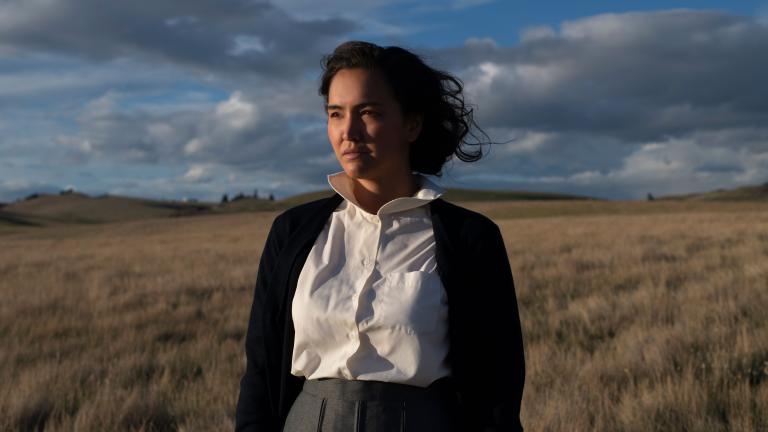Torn from their Cree family in Manitoba and forced into residential school, Aline Spears and her siblings begin a fight to survive that shapes their family for generations.
Based on true events, Bones of Crows was partially filmed at the Kamloops Indian Residential School just after the discovery of unmarked children’s graves on that site. The film depicts the cruelty of a system that professed to “Christianize and civilize” Indigenous children but instead starved, abused and traumatized them.
Told through Aline’s eyes, Bones of Crows is also a story of resilience. It unfolds over a century as it follows her journey from gifted child to defiant matriarch.
Despite government policies aimed at erasing Indigenous identity, Aline survives residential school with her first language intact. Ironically, this makes her invaluable as a Cree code talker for the Canadian Air Force during the Second World War. Gratitude for her service, however, is elusive. Aline’s life continues to be marred by struggle, ubiquitous racism and the long‐lasting impact of trauma.
“In the story of Bones of Crows, we come to understand memory not just as a flashback but as an emotional reaction triggered by a present one,” said Marie Clements who wrote and directed the film.
The Canadian Museum for Human Rights is proud to partner with Cinematheque on this screening as part of our ongoing Human Rights Through Film series.

